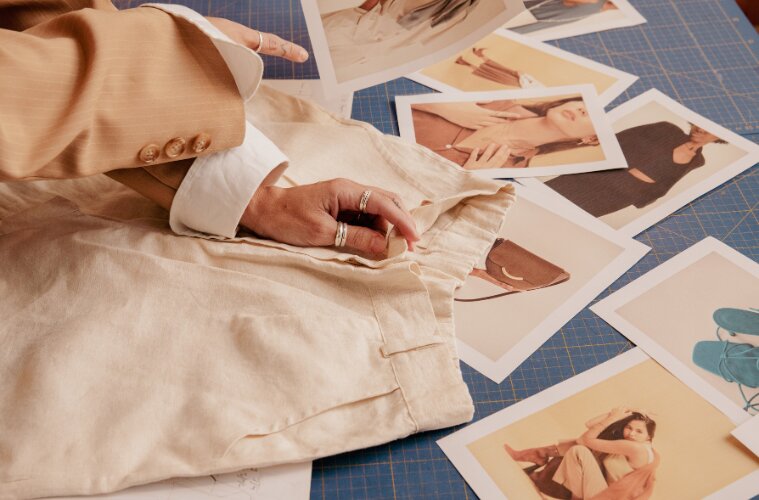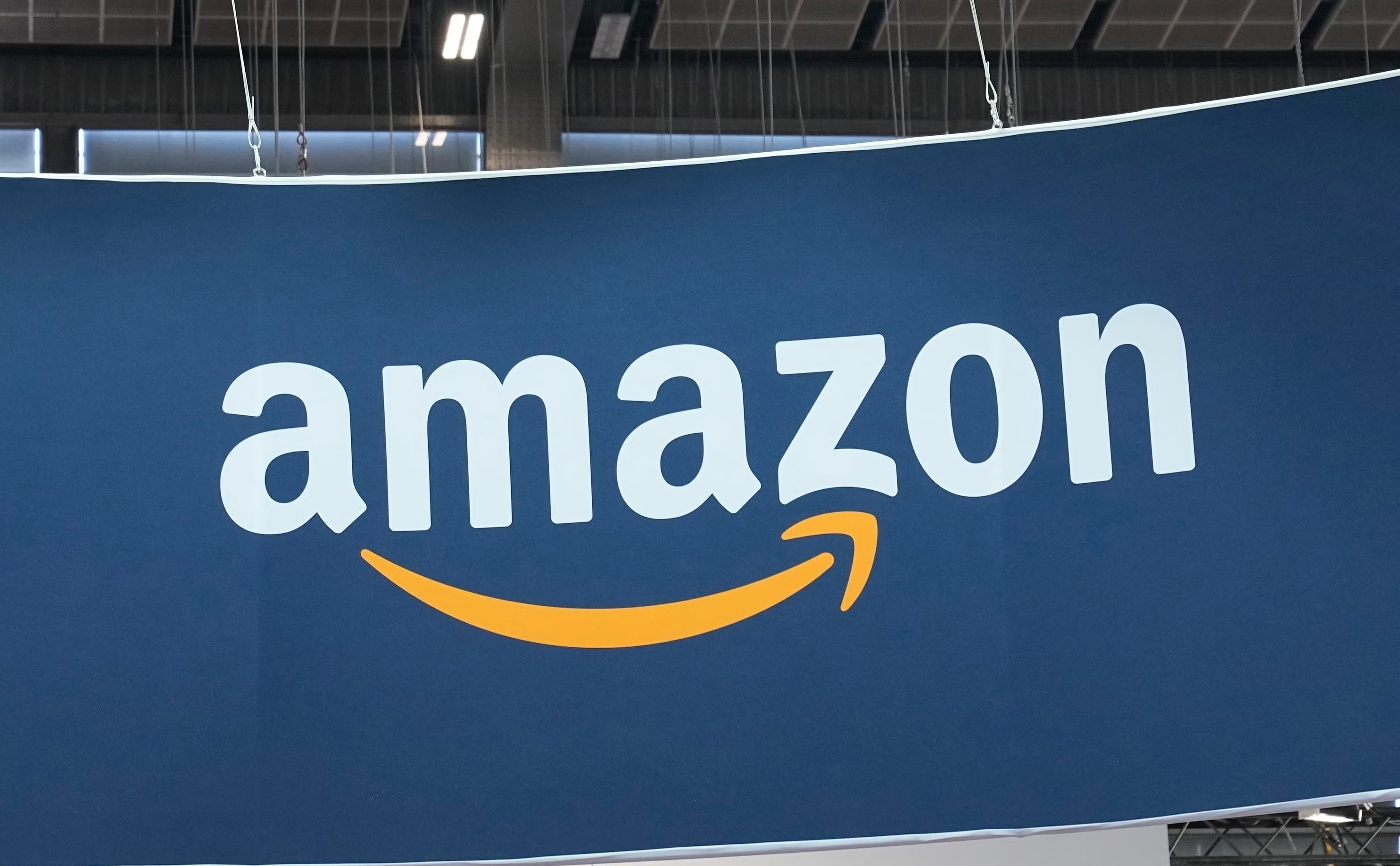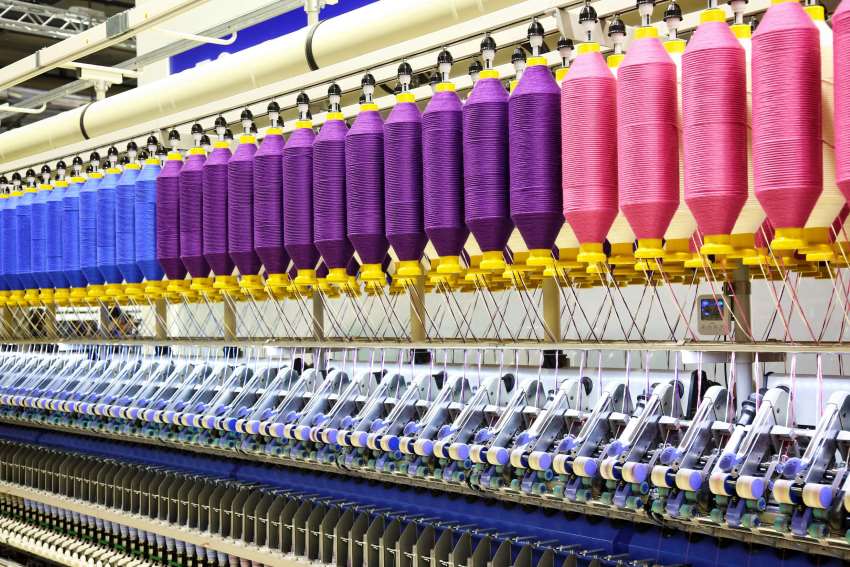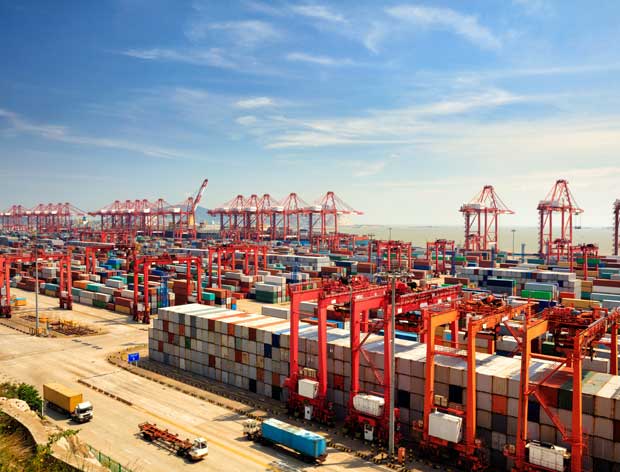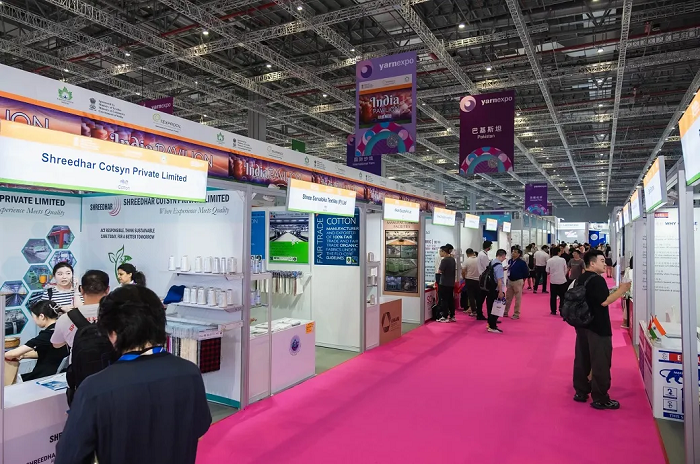FW
British Fashion Council (BFC) has been working with Arts Council England (ACE), in partnership with the Home Office and the Department for Digital, Culture, Media and Sport, to expand and promote the Tier 1 (Exceptional Talent) visa to fashion industry applicants. BFC will work as an independent assessor for Tier 1 Exceptional Talent visa applications in the fashion industry, to secure a new route for talented designers and fashion sector individuals to work in the UK. The number of Tier 1 Exceptional Talent visas was increased in November 2017 from 1000 to 2000, and half of these will be allocated on a demand-led basis. This creates a significant opportunity for the fashion industry in the UK to attract and retain key designers, talent and creatives.
The Tier 1 Exceptional Talent visa is available to individuals from outside the European Economic Area and Switzerland who have been endorsed in their field in arts, humanities, engineering or science as a recognised (exceptional talent) or emerging leader (exceptional promise).
Applicants may be of exceptional talent who have established themselves as world class, are internationally recognised and have won awards across their peer group. Successful applicants will be granted five years in the UK, which is open to extension if the applicant can continue to prove their exceptional talent.
Bangladesh’s export earnings grew 5.81 per cent in fiscal year 2017-18.
This was mainly because of the performance of apparels, jute and leather.
However total export receipts were 2.22 per cent less than the strategic target.
Exports of the readymade garment sector posted a 8.76 per cent growth.
Earnings of knitwear products recorded a 10.40 per cent growth over the previous fiscal.
Export receipts from woven garments until June of the last fiscal rose by 7.18 per cent compared to the previous fiscal. Export earnings from home textile products until June of the last fiscal were up by 9.95 per cent.
Export earnings from jute and jute goods were up by nearly 6.56 per cent from that of a year ago. Jute yarn and twine recorded a growth of 6.55 per cent while raw jute recorded a fall of 7.24 per cent.
Earnings from the shipment of leather and leather products fell by 12.03 per cent. Only leather footwear grew by 5.33 per cent.
Export receipts from frozen and live fish amounted to 508.43 million dollars and that of agricultural products reached 673.70 million dollars.
The country’s export earnings touched the 30 billion dollar benchmark for the first time.
The expansion is seen as satisfactory compared with the previous year’s 0.20 per cent.
Technotex was held in Mumbai, June 28 to 29, 2018.
This provides a common platform for interaction among stakeholders from across the global technical textile value chain. The two-day conference and exhibition was attended by 350 delegates and over 7000 visitors.
Each year, Technotex attracts participants, visitors and other key decision makers from a diverse section of the technical textile industry, with the aim to provide innovative solutions, identifying new business opportunities and create a congenial environment for growth.
The event showcased products from various sub-sectors of technical textiles such as agrotech, buildtech, clothtech, geotech, hometech, indutech, medtech, mobiltech, oekotech, packtech, protech, sporttech, technical textiles equipment and machinery, raw materials and textile manufacturing services.
With participation from 39 countries, the event had a total of 168 exhibitors. The event also had participation from various states including Gujarat, Telangana, Jharkhand and Chhattisgarh while Maharashtra was the host state.
The event provides a gateway to the technical textile arena and bridges the gap between buyers and sellers by facilitating B2B (Business-to-Business) and G2B (Government-to-Business) meetings. This year, a total of 1160 B2B meetings and 51 G2B took place and 230 international buyers took part in reverse buyer-seller meets.
This year the theme was Technical Textiles: Transforming India, Building infrastructure for a New India.
Several garment and shoe factories in Yangon plan to close this year amid a challenging global business environment and a lack of policy direction, according to industrial zone sources. A garment factory in the Hlaing Tharyar Industrial Zone with some 500 employees recently said it would shut down soon because of financial constraints. U Aye Thaung, Chairman of the management committee of Shwe Lin Pan Industrial Zone stated it won’t shut down immediately. It only plans to shut down and outlined how it will compensate employees.
As per the manufacturers, frequent changes in government policies, low productivity and declining purchase orders from foreign countries are making it difficult for garment and shoe factories to survive and Big investors like that need to make long-term plans. He further added that no new investments are coming into the industry, as existing local and foreign-backed factories are struggling.
A number of shoe factories are planning to close because Myanmar’s share of the world’s footwear market has declined, says U Aye Thaung. Leather shoes are mainly exported to Western countries and certain Asian countries like Japan and Korea. Nearly half of the 15 shoe factories currently operating in Myanmar are likely to shut down by the end of this year. Only factories that make sports shoes and ladies’ footwear are doing well.
Adidas has built a shoe factory in Hlaing Tharyar that will employ around 100,000 people. But it dare not move forward with the project, mainly because of frequent changes in government policies.
According to factory owners, complicated procedures regarding land acquisition and operation, unreliable electricity supply and the presence of squatters in factory compounds are among the major problems facing industrial zones.
"India’s largest apparel trade show – The 67th National Garment Fair is being organised by the Clothing Manufacturers Association of India (CMAI) from July 16 to 19, 2018 at the Bombay Exhibition Centre, Goregaon. The fair will be inaugurated by Rahul Mehta, President, CMAI, who is also the ex-chairman of the International Apparel Federation (IAF). The B2B fair will be spread over approx 650,000 sq. ft. and will be attended by 986 exhibitors displaying 1,087 leading brands in menswear, women’s wear, kids wear and accessories. CMAI will also publish the ‘Show Directory’, popularly known as the Fair Guide."
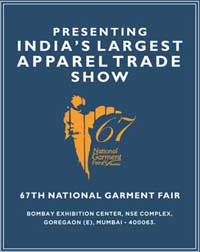 India’s largest apparel trade show – The 67th National Garment Fair is being organised by the Clothing Manufacturers Association of India (CMAI) from July 16 to 19, 2018 at the Bombay Exhibition Centre, Goregaon. The fair will be inaugurated by Rahul Mehta, President, CMAI, who is also the ex-chairman of the International Apparel Federation (IAF). The B2B fair will be spread over approx 650,000 sq. ft. and will be attended by 986 exhibitors displaying 1,087 leading brands in menswear, women’s wear, kids wear and accessories. CMAI will also publish the ‘Show Directory’, popularly known as the Fair Guide.
India’s largest apparel trade show – The 67th National Garment Fair is being organised by the Clothing Manufacturers Association of India (CMAI) from July 16 to 19, 2018 at the Bombay Exhibition Centre, Goregaon. The fair will be inaugurated by Rahul Mehta, President, CMAI, who is also the ex-chairman of the International Apparel Federation (IAF). The B2B fair will be spread over approx 650,000 sq. ft. and will be attended by 986 exhibitors displaying 1,087 leading brands in menswear, women’s wear, kids wear and accessories. CMAI will also publish the ‘Show Directory’, popularly known as the Fair Guide.
Domestic apparel market growth
Mehta points out domestic apparel market has grown at a CAGR of 10 per cent since 2005 and is estimated to worth $67 billion in 2017. The market, due to the presence of strong fundamentals, is expected to grow at CAGR of 11-12 per cent and reach about $160 billion by 2025. The segment is mainly dominated by the ready-to-wear category which makes up 84 per cent of the total market, amounting to $56 billion, growing at a CAGR of 10-11 per cent.
Meanwhile, the ready-to-stitch segment is also gaining momentum as men who earlier bought premium or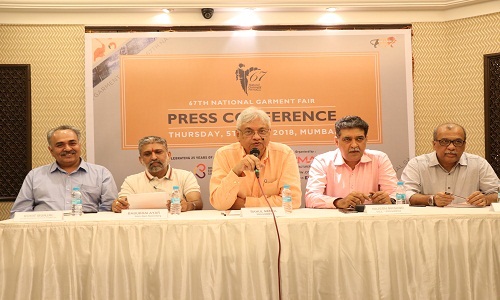 luxury readymade clothing brands are now opting for a shirt or a trouser that fits them perfectly. The ready-to-stitch market, is currently estimated at $11 billion and expected to grow at a CAGR of 7 per cent and reach about $20 billion in 2025.
luxury readymade clothing brands are now opting for a shirt or a trouser that fits them perfectly. The ready-to-stitch market, is currently estimated at $11 billion and expected to grow at a CAGR of 7 per cent and reach about $20 billion in 2025.
Declining exports a bug bear
Premal Udani, Chairman, Board of Trustees, CMAI observes apparel exports are declining since October 2017. The introduction of GST has resulted in non-refund of several embedded taxes. Consequently apparel exports for the financial year 2017-18, has declined 4 per cent to $16.7 billion. This downturn is continuing in FY 2018-19 with a month on month decline of 10 per cent. To counter this, the government has assured embedded taxes will be refunded through the drawback route.
"The Lenzing Group introduces Veocel, the company’s new nonwoven specialty brand. Positioned as a premium brand of nonwoven fibres for daily care rituals, Veocel provides the nonwoven industry with fibers that are certified clean and safe, biodegradable, from botanic origin and produced in an environmentally responsible production process. Offerings under the Veocel brand cover a broad range of applications for everyday use, from baby care, beauty and body care to intimate care and surface cleaning. Such applications are categorised under branded offers Veocel Beauty, Veocel Body, Veocel Intimate and Veocel Surface."
 The Lenzing Group introduces Veocel, the company’s new nonwoven specialty brand. Positioned as a premium brand of nonwoven fibres for daily care rituals, Veocel provides the nonwoven industry with fibers that are certified clean and safe, biodegradable, from botanic origin and produced in an environmentally responsible production process. Offerings under the Veocel brand cover a broad range of applications for everyday use, from baby care, beauty and body care to intimate care and surface cleaning. Such applications are categorised under branded offers Veocel Beauty, Veocel Body, Veocel Intimate and Veocel Surface.
The Lenzing Group introduces Veocel, the company’s new nonwoven specialty brand. Positioned as a premium brand of nonwoven fibres for daily care rituals, Veocel provides the nonwoven industry with fibers that are certified clean and safe, biodegradable, from botanic origin and produced in an environmentally responsible production process. Offerings under the Veocel brand cover a broad range of applications for everyday use, from baby care, beauty and body care to intimate care and surface cleaning. Such applications are categorised under branded offers Veocel Beauty, Veocel Body, Veocel Intimate and Veocel Surface.
Veocel is a key milestone in Lenzing’s new brand strategy to transform from a business-to-business (B2B) fibre producer to a business-to-business-to-consumer (B2B2C) brand. Coupled with ongoing co-branding, joint marketing and brand education initiatives conducted with customers and brands globally, Veocel will enable Lenzing to shift its focus beyond fibre types to product application and build a relatable and emotional connection with consumers.
Robert van de Kerkhof, Chief Commercial Officer, Lenzing Group explains, “Guided by our sCore Ten strategy, the launch of the Veocel brand will accelerate our migration into a specialty fibre business with a strong focus on innovation, quality and sustainability. Through ongoing proactive communication, the Veocel brand will also promote a holistic understanding about the benefits of botanic fibres in nonwoven products across the industry value chain and among consumers. This will not only help to maximise the marketing efforts of our customers and partners, but also drive dialogue about sustainability across the nonwoven industry. Through the Veocel brand, we hope to address the growing demand for transparency and sustainability across the value chain and provide consumers with greener product options.”
accelerate our migration into a specialty fibre business with a strong focus on innovation, quality and sustainability. Through ongoing proactive communication, the Veocel brand will also promote a holistic understanding about the benefits of botanic fibres in nonwoven products across the industry value chain and among consumers. This will not only help to maximise the marketing efforts of our customers and partners, but also drive dialogue about sustainability across the nonwoven industry. Through the Veocel brand, we hope to address the growing demand for transparency and sustainability across the value chain and provide consumers with greener product options.”
The USPs
The latest addition to the Veocel Surface brand – the Veocel Lyocell Fiber with ‘Quat’ Release technology, is a premium and specialty wood-based cellulose fibre used in hard surface cleaning and disinfectant wet wipes. Veocel Lyocell fibres with Lenzing’s Quat Release technology allow quaternary ammonium compounds, also known as ‘Quat’, to be released from wet wipes onto the surface for effective cleaning and disinfecting in household and industrial environments.
While the nonwoven industry has acknowledged the benefits of Lenzing’s cellulosic fibres, such as their sustainable nature, botanic origin and ability to improve cleaning experience, the majority of single-use cleaning and disinfectant wet wipes mainly consists of synthetic fibers such as polyester and polypropylene. This binding interaction substantially decreases the release of ‘Quat’ and can negatively impact the efficacy of the disinfectant product. However, with Lenzing’s ‘Quat’ Release technology, the binding of ‘Quat’ to the surface of Veocel Lyocell Fibres is significantly reduced, resulting in improved effectiveness of surface cleaning and the disinfection process. Wet wipes containing Veocel Lyocell Fibre with ‘Quat’ Release technology demonstrate significantly improved release of ‘Quat’ from the wet wipe to the surface, resulting in improved product stability and performance. In addition, Veocel Lyocell fibres also promote good absorbency, homogenous distribution of liquid in wet wipes and good hand feel.
“Following the introduction of Veocel, joint promotional programmes with retail brand partners will be rolled out to equip consumers with the knowledge they need to identify nonwoven products that combine advanced performance, comfort and sustainability. “With Veocel, we are building a consumer-focussed ingredient brand that proactively communicates with consumers through a B2Me approach, which is unique to the nonwoven industry. Given nonwoven products are in close contact with skin or other sensitive areas of the body, ongoing consumer outreach plays a critical role in building trust among consumers. Matched with a tagline ‘purely for you’, we wish to convey a Veocel brand promise that highlights our dedication to provide certified clean and safe products and pure care to consumers and the environment,” said Harold Weghorst, director – global brand management, Lenzing Group.
The 34th edition of IAF World Fashion Convention will be held in the Maastricht, Netherlands on October 9 and 10, 2018. The event caters to apparel industry leaders from across the supply chain, from all continents. The theme of the edition is Building a smart future for the fashion industry.
In a world where prices cannot drop much lower, boats cannot go much faster and people cannot work much harder, improvements are made only when the business is made smarter.
From smart supply chain collaboration to smart new machines, smart materials and above all, smart people, the convention will show many inspiring examples of a smarter apparel supply chain. Top speakers from across the globe cover the width of the supply chain, from raw materials to apparel sourcing and from production to retail trends. The convention provides an excellent opportunity to meet the global industry in one location in a few days’ time.
World Fashion Convention is organized by the International Apparel Federation. This is the only global federation of its kind representing apparel associations from 60 countries, representing over 1,50,000 companies. The co-organizer is Modint. This is the Dutch association for the fashion and textile industries. It has about 600 members who have a cumulative annual turnover of about nine billion euro.
Georgia and Hong Kong have signed a free trade agreement. The FTA was negotiated in 2016 and has several standard components, namely the elimination or reduction of tariffs, the liberalization of non-tariff barriers, flexibility regarding rules of origin to facilitate bilateral trade, customs facilitation procedures, liberalization and promotion and protection of investment, liberalization of trade in services, and a dispute settlement mechanism for the FTA.
The FTA has strategic value for Hong Kong and will help expand Hong Kong’s FTA network into the respective regions including Eurasia. The agreement is Hong Kong’s first with a country in the Caucasus region.
Georgia is the city's 121st trading partner in terms of goods. The signing is a part of Hong Kong’s long-term strategy of expanding its global reach as it moves toward being an international trading center. In the past 12 months, the city has secured three sets of FTAs, including the one with Georgia. The agreement aims to facilitate and promote trade between Georgia and Hong Kong. There are hopes that increased trade with Hong Kong will encourage Georgian entrepreneurs to participate in the high-end Hong Kong market. The FTA is advantageous for Georgia, as Hong Kong is a key international transit and financial center. The agreement is scheduled to enter into force by the end of the current year.
Wolford’s Aurora collection of leggings and pullovers is Cradle to Cradle gold certified. The new styles created use premium stretch yarn belonging to the Roica Eco-Smart family, the world’s first yarn awarded the Cradle 2 Cradle Material Health Gold Level Certificate and the Hohenstein Environment compatibility certification, which provides evidence of compliance and offers confidence as a responsible choice.
In addition to premium stretch yarn from the Roica Eco-Smart family, Aurora pieces are made using two other responsible fibers, Lenzing Modal, a cellulosic fiber derived from sustainable forestry, and infinito by Lauffenmühle, a specially modified oil based biodegradable polymer.
Instead of using new materials, Wolford’s new collection is developed to return the ingredients back to the cycle. It simply borrows them for the lifetime of the product, which supports responsible product ingredient sourcing. At the end of the Aurora collection product lifecycle, Wolford will return them to an industrial composting station to naturally break down without releasing harmful environmental substances.
Wolford is committed to becoming part of the solution and activating change as it continues to explore responsible material innovations. Wolford is recognized for high quality skin wear and is a favorite among fashion influencers. The brand believes sustainable luxury is a new ingredient and is dedicated to expanding its collections each season and using responsible materials.
Isko has a production capacity of 250 million meters of fabric a year and works with high street brands. Based in Turkey, Isko is the world’s largest denim supplier. It was the first denim mill in the world to be awarded the Nordic Swan Ecolabel, which evaluates all the environmental issues in the life-cycle of a product. It is also the only mill in the world to obtain life-cycle assessments, which assess environmental footprint, for all its products.
Isko is prioritising sustainability. It has assessed all its 25,000 products, so it knows exactly how much energy and how much water each one uses. Isko has been a member of the Sustainable Apparel Coalition since 2015. To reduce its environmental footprint, Isko is using lower-impact fibers and developing technologies that improve the performance of fabrics throughout their lifecycle. This is in addition to its leading methods of minimising water consumption and other kinds of waste.
The company has also developed numerous patented technologies that can be produced in any low-impact fiber combination, from organic to recycled. Its Reform stretch technology, for example, showcases how to design longer lasting, better-functioning products. Another example is POP technology, which combines one-of-a-kind shine with a unique silky softness that begins in the yarn and stays with the garment.




